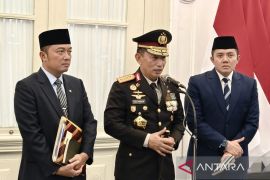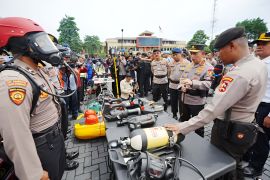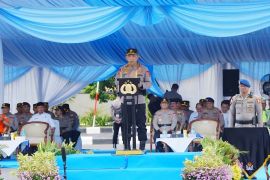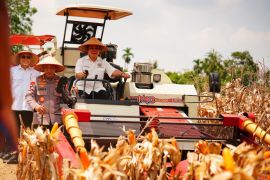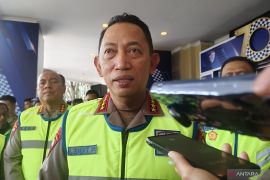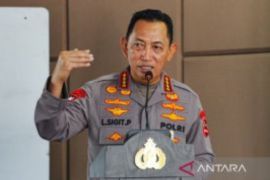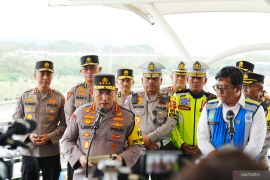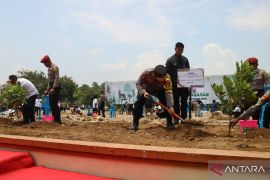"We had identified 228 drug villages throughout Indonesia, and 118 of them have been transformed into drug-free villages," National Police Chief General Listyo Sigit Prabowo said at the press conference in Jakarta on Wednesday.
According to him, drug-free villages are environments where the community has demonstrated self-resilience in preventing drug trafficking and abuse.
In each drug-free village, his party has set up various facilities, including counseling posts and community halls, that residents can use for drug-prevention activities.
In order to optimize community self-reliance, the National Police together with officials in drug-free villages conduct routine and sustained prevention programs, Listyo added.
"Socialization and education, routine patrols, assistance to victims of drug abuse, and social and economic rehabilitation through job training and assistance to MSMEs," he outlined.
Alongside prevention, the National Police also pursue law enforcement. Over the period October 2024–2025 — the first year under President Prabowo Subianto and Vice President Gibran Rakabuming Raka administration — they handled 49,306 narcotics cases involving 65,572 suspects and seized 214.84 tons of drugs.
"The National Police are committed to increasing efforts in eradicating drug abuse by strengthening prevention and firm and professional law enforcement," Listyo emphasized.
On Wednesday, President Prabowo attended the destruction of 214.84 tons of drug evidence, valued at Rp29.37 trillion (US$1.7 billion).
This activity marks one year of concrete presidential policies with direct impact on the public, namely, safeguarding the nation’s future generation from drug threats.
"And if they fail to prevent it, confiscate it, or arrest it, the drugs could target 629 million people. That's more than twice the population of Indonesia, almost twice," he highlighted.
The head of state also reminded that drug eradication cannot be solely the responsibility of one or two institutions, but must be a shared responsibility of the entire nation.
He believes the involvement of parents, teachers, and communities is crucial in preventing the circulation of these illicit substances.
Related news: South Kalimantan police laud growing number of drug-free villages
Related news: Prabowo warns of national threat from 214.8 tons of seized narcotics
Related news: Police Chief flags new drug abuse trend
Translator: Resinta Sulistiyandari
Editor: Azis Kurmala
Copyright © ANTARA 2025


